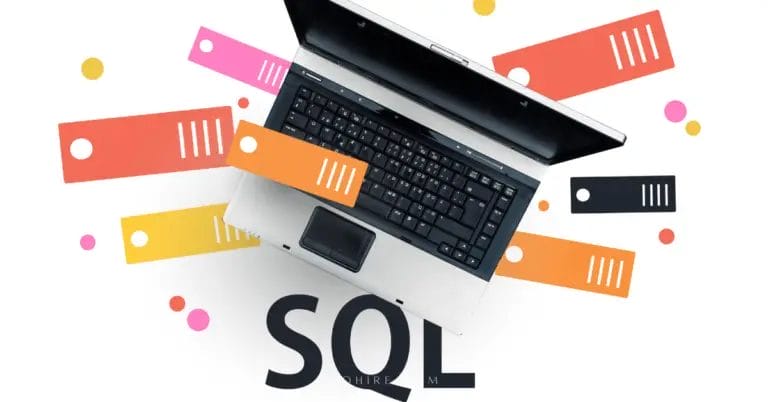|
Listen To Article
Getting your Trinity Audio player ready...
|
Compliance officers play a crucial role in ensuring that organizations adhere to laws, regulations, and internal policies. Their responsibilities span across various industries, safeguarding companies against legal and reputational risks.
To excel in this demanding profession, individuals must possess a unique set of skills and traits.
This article explores the key skills needed to become a successful compliance officer, highlighting the significance of interpersonal skills, professional expertise, and personal traits in fulfilling the duties and responsibilities of this vital role.
Duties and Responsibilities of a Compliance Officer
As a compliance officer, you are tasked with upholding legal and ethical standards within your organization. Your duties and responsibilities encompass a wide range of activities to maintain compliance. These include:
- Ensuring adherence to laws, regulations, and internal policies: Monitoring and enforcing compliance with applicable laws, regulations, and internal policies to prevent legal violations and mitigate risks.
- Conducting risk assessments and audits: Identifying potential compliance risks through systematic evaluations and conducting audits to assess the effectiveness of existing control measures.
- Developing and implementing compliance programs: Creating comprehensive compliance programs tailored to your organization’s needs, including policies, procedures, and training materials.
- Training employees on compliance-related matters: Educating employees about compliance requirements, fostering awareness, and providing guidance on ethical conduct and regulatory obligations.
- Investigating and resolving compliance violations: Proactively investigating reported violations, conducting thorough assessments, and implementing corrective actions to address compliance breaches.
- Reporting to management and regulatory authorities: Providing regular reports to senior management and regulatory bodies to demonstrate compliance efforts and ensure transparency.
Characteristics of a Compliance Officer
To excel as a compliance officer, certain characteristics are essential for effectively carrying out your responsibilities. These include:
- Detail-oriented and analytical mindset: A meticulous approach to analyze complex regulations, identify potential risks, and implement compliance measures with precision.
- Strong ethical standards and integrity: Upholding high ethical principles to make impartial decisions, maintain trust, and preserve the organization’s reputation.
- Ability to handle confidential information with discretion: Demonstrating professionalism and safeguarding sensitive information to preserve confidentiality and protect the organization’s interests.
- Excellent communication skills: Effectively conveying compliance requirements, training materials, and investigation outcomes to various stakeholders, both orally and in writing.
- Keen problem-solving and decision-making abilities: Assessing compliance challenges, evaluating alternative solutions, and making informed decisions to address complex compliance issues.
- Adaptability to changing regulations and industry trends: Embracing continuous learning, staying updated with evolving regulations, and proactively adjusting compliance programs to meet changing industry dynamics.
- Collaborative and team-oriented approach: Working collaboratively with colleagues, departments, and external stakeholders to foster a culture of compliance throughout the organization.
Interpersonal Skills for Success as a Compliance Officer
In addition to technical expertise, interpersonal skills are vital in establishing effective relationships and achieving compliance goals. The following interpersonal skills are particularly beneficial for a compliance officer:
- Active listening: Actively listening to employees, management, and other stakeholders to understand compliance concerns, address queries, and provide appropriate guidance.
- Persuasion and negotiation: Influencing stakeholders to embrace compliance practices, fostering a culture of compliance, and negotiating win-win solutions in complex situations.
- Empathy: Understanding the challenges faced by employees and stakeholders, and approaching compliance matters with empathy to build trust and collaboration.
- Conflict resolution: Resolving compliance-related disputes through effective communication, mediation, and conflict resolution techniques to maintain harmony within the organization.
- Relationship-building: Establishing strong working relationships with employees, management, and regulatory bodies, cultivating a network of support, and promoting compliance awareness.
Professional Skills Required for Effective Compliance Management
As a compliance officer, possessing a diverse set of professional skills is crucial to effectively manage compliance activities within your organization. The following professional skills play a pivotal role:
- Legal knowledge: Deep understanding of relevant laws, regulations, and industry standards to interpret and apply them accurately in your organization’s compliance programs.
- Risk management: Proficiency in identifying, assessing, and mitigating compliance risks by implementing robust risk management frameworks and control measures.
- Data analysis: Competency in analyzing compliance-related data, identifying patterns, trends, and potential risks, and leveraging insights for proactive compliance management.
- Documentation and reporting: Meticulous record-keeping, maintaining accurate compliance documentation, and preparing comprehensive reports for management and regulatory bodies.
- Technology skills: Familiarity with compliance software and tools, leveraging technology to streamline compliance processes, automate reporting, and enhance efficiency.
- Project management: Organizing and executing compliance initiatives, managing timelines and resources, and ensuring successful completion of compliance projects.
- Training and education: Designing and delivering engaging compliance training programs to educate employees, increase awareness, and embed compliance practices within the organization.
Personal Traits that Support Success in the Compliance Officer Role
Apart from technical skills, certain personal traits are instrumental in thriving as a compliance officer. These traits include:
- Integrity: Adhering to ethical standards in all actions and decisions, serving as a role model for ethical conduct within the organization.
- Attention to detail: Ensuring accuracy and thoroughness in compliance processes, documentation, and reporting to minimize errors and mitigate compliance risks.
- Accountability: Taking ownership of compliance responsibilities, acknowledging mistakes, and learning from them to continuously improve compliance practices.
- Resilience: Adapting to challenges and setbacks in the ever-changing regulatory landscape, remaining resilient in the face of obstacles, and demonstrating perseverance.
- Curiosity: Maintaining a curious mindset, actively seeking knowledge, and staying updated on industry developments, regulations, and emerging compliance trends.
- Professional skepticism: Adopting a critical mindset to evaluate compliance practices objectively, identifying potential gaps, and continuously improving compliance measures.
What Does It Mean To Become a Compliance Officers
Becoming a successful compliance officer requires a combination of technical skills, interpersonal abilities, and personal traits. By cultivating a diverse skill set, including effective communication, analytical thinking, and ethical conduct, you can excel in this dynamic profession.
Upholding compliance standards, mitigating risks, and fostering a culture of ethical behavior will not only protect your organization but also contribute to its long-term success. Embrace the challenge, continuously develop your skills, and make a meaningful impact as a compliance officer in the ever-evolving business landscape.
Job Description Example
Compliance Officers Job Description
We are seeking a highly skilled and detail-oriented Compliance Officer to join our team.
As a Compliance Officer, you will be responsible for ensuring our organization operates within legal and regulatory boundaries. You will play a crucial role in implementing and monitoring compliance programs, conducting audits, and advising on risk management.
The ideal candidate should have a strong understanding of relevant laws and regulations, excellent analytical skills, and the ability to communicate complex information effectively.
Responsibilities
- Develop and implement comprehensive compliance policies and procedures.
- Monitor and assess the organization’s compliance with relevant laws, regulations, and internal policies.
- Conduct regular compliance audits to identify and address potential risks and violations.
- Provide guidance and training to employees on compliance-related matters.
- Investigate and report any compliance breaches or misconduct.
- Collaborate with cross-functional teams to ensure compliance requirements are integrated into business processes.
- Stay up-to-date with changes in regulations and industry best practices, and make recommendations for adjustments to compliance programs.
- Maintain accurate records and documentation related to compliance activities.
Key Requirements
- Bachelor’s degree in law, business administration, or a related field.
- Proven work experience as a Compliance Officer or similar role.
- Strong knowledge of relevant laws and regulations, such as anti-money laundering (AML), data protection, and industry-specific compliance requirements.
- Excellent analytical and problem-solving skills.
- Ability to interpret complex legal and regulatory documents.
- Exceptional attention to detail and organizational skills.
- Effective communication and interpersonal skills, with the ability to collaborate and influence stakeholders at all levels.
- Familiarity with compliance software and tools is a plus.
- Professional certifications in compliance, such as Certified Compliance & Ethics Professional (CCEP), are highly desirable.
We’ve one question…
Did we miss out on any critical skills needed?
Let us know in the comments below!
Looking for other career paths? Check this career list now!
Read Also:
- 20 Online Meeting Etiquette in The Workplace (Remote Work)
- How to Host Effective Online Meeting (Beginner’s Guide)
- Online Meetings in the Workplace (Complete Guide)
- +15 Best Webinar Software for Business and Workplace (Live & Automated)
- Best Practices For Confirming a Meeting
Join over 11,000+ achievers who are committed to achieving their career goals!






